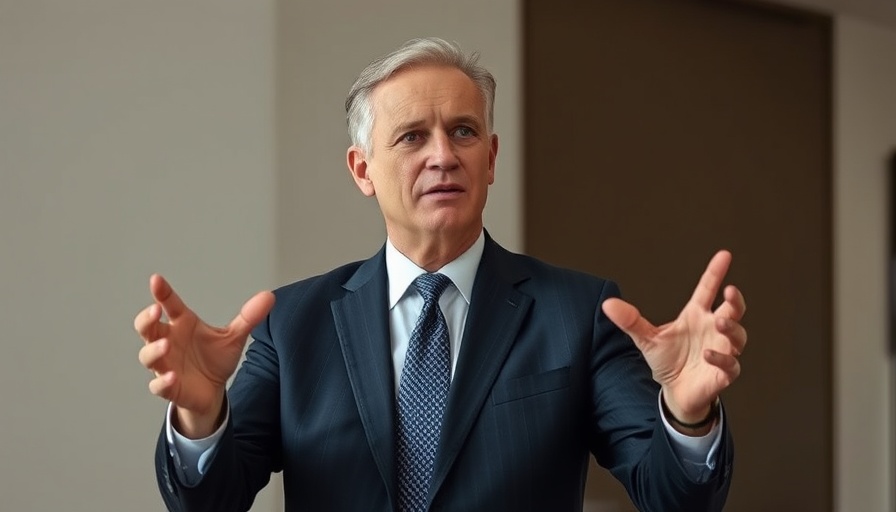
Lawmakers Demand Accountability Over Health Department Cuts
During a fervent budget hearing at the U.S. Capitol, Secretary of Health and Human Services Robert F. Kennedy Jr. faced intense scrutiny from lawmakers across party lines regarding significant staffing cuts and funding freezes within his department. In a session marked by pointed questioning and heightened emotions, both Democrats and Republicans expressed concerns that such drastic measures threaten public health initiatives, including vaccine uptake and cancer research.
A Bipartisan Concern for Public Health
The atmosphere in the hearings reflected a rare bipartisan agreement on the importance of maintaining robust health services. Lawmakers were particularly alarmed at Kennedy's reported reduction of the health department's workforce from 82,000 to 62,000 employees. This drastic cut, they asserted, compromises the department's ability to serve the American public effectively, with serious implications for critical programs aimed at infectious disease management and maternal health. Senator Patty Murray highlighted a sobering case from her district, recalling a mother named Natalie who experienced treatment delays for Stage 4 cancer.
Promising a Healthier Future or Dangerous Cuts?
As Kennedy testified, he defended the administration's plans to reshape the department, thereby proposing the "Make America Healthy Again" initiative, which boasts a $500 million budget to promote wellness and healthy lifestyles. Yet, this initiative comes at a cost, with almost $20 billion slashed from the National Institutes of Health’s budget, raising alarm among lawmakers about the future of research and treatment for various diseases.
Implications for Communities
The impact of these budget cuts extends beyond Washington, directly affecting communities like North County in San Diego, where health services are crucial for maintaining overall wellness. With local health resources dwindling, families may have to face tougher challenges when accessing necessary medical care. How many families will find themselves in situations similar to Natalie's?
Public Health as a Priority
The back-and-forth exchanges between Kennedy and lawmakers alluded to a significant dilemma: balancing a streamlined government with the importance of public health. Lawmakers questioned whether the cuts align with an overall goal of improving health outcomes. Some cited Governor Gavin Newsom's recent reforms in California that aim to enhance accessibility and reduce health disparities as a contrasting approach worth examining.
Why It Matters for You
For the average citizen, understanding these shifts and cuts is vital. They underscore the importance of being informed about health policy changes that can affect future access to health services. Following the developments in Washington not only impacts your understanding of national health management but also how local initiatives, like community fitness programs and mental health resources, may evolve in response.
- Stay Informed: Keep an eye on policy changes that affect your health services.
- Engage Locally: Attend local town hall meetings to voice concerns and suggest initiatives.
- Promote Wellness: Encourage healthy lifestyle choices in your community to mitigate the effects of cuts.
With the fate of essential health programs hanging in the balance, ensuring that public health remains a priority is crucial for not just Washington but communities across states like North County in San Diego. As citizens, putting your voices forth can help shape future policy that prioritizes wellness and accessible healthcare for all.
 Add Row
Add Row  Add
Add 




 Add Row
Add Row  Add
Add 

Write A Comment